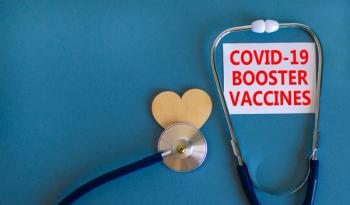
The Path To Shortening Long COVID May Go Through Gut
A preparation designed to restore the gut microbiota showed positive results on 14 long COVID symptoms according to results reported in The Lancet Infectious Diseases.
For reasons that aren’t entirely clear, long COVID is associated with diminished microbial diversity in the gut and a decrease in several healthful strains of bacteria, such as Bifidobacterium adolescentis. Researchers are now exploring whether therapies that aimed at reviving a beleaguered gut microbiome’s profile might be an avenue for treating long COVID.
Last week researchers at The Chinese University of Hong Kong reported positive results for microbiome-modifying therapy in the journal The Lancet Infectious Diseases. Although randomized and double blinded, the study was conducted at a single center and so must be interpreted with some caution.
Long COVID is also called long-haul COVID, post-COVID-19 conditions and chronic COVID. The technical term is post-acute sequelae of SARS-CoV-2 (PASC). Some research suggests that the proportion of people who develop long COVID after the initial infection has decreased. The National Center for Health Statistics reported in September 2023 that 6.9% of those who have had COVID-19 had had long COVID, according to the 2022 National Health Interview Survey.
Joint first authors
Results reported by Lau and Su and colleagues showed that those assigned to the treatment group fared than those assigned to the placebo group on all 14 long COVID symptoms. Here are the results by proportion of patient whose long COVID symptoms were relieved:
The researchers also analyzed fecal samples. The bacteria diversity was higher in the treatment group than in the placebo group. Their measurements also showed greater numbers of certain species (Bifidobacterium pseudocatenulatum and Bifidobacterium longum) and lesser numbers of others (Klebsiella pneumoniae, Klebsiella variicola and Parabacteroides merdae). They also found some association between the decreases in some symptoms with the bacteria; for example, Bifidobacterium adolescentis was positively associated with alleviation in fatigue.
“We found that SIMO1 led to improved gut microbiota composition by promoting the abundance of beneficial bacteria associated with [long COVID] such as those of the Klebsiella genus,” Lau and Su and colleagues wrote in the discussion section of the study. But they note that their analysis of cytokines didn’t show any difference between the treatment and placebo groups, so there are still unanswered questions about how improving the gut’s microbiota would ease long COVID symptoms.
Lau and Su also note one of the ob with researching long COVID: The symptoms are common ones and having many causes so teasing out the effect of a particular treatment and its effects.
Newsletter
Get the latest industry news, event updates, and more from Managed healthcare Executive.























